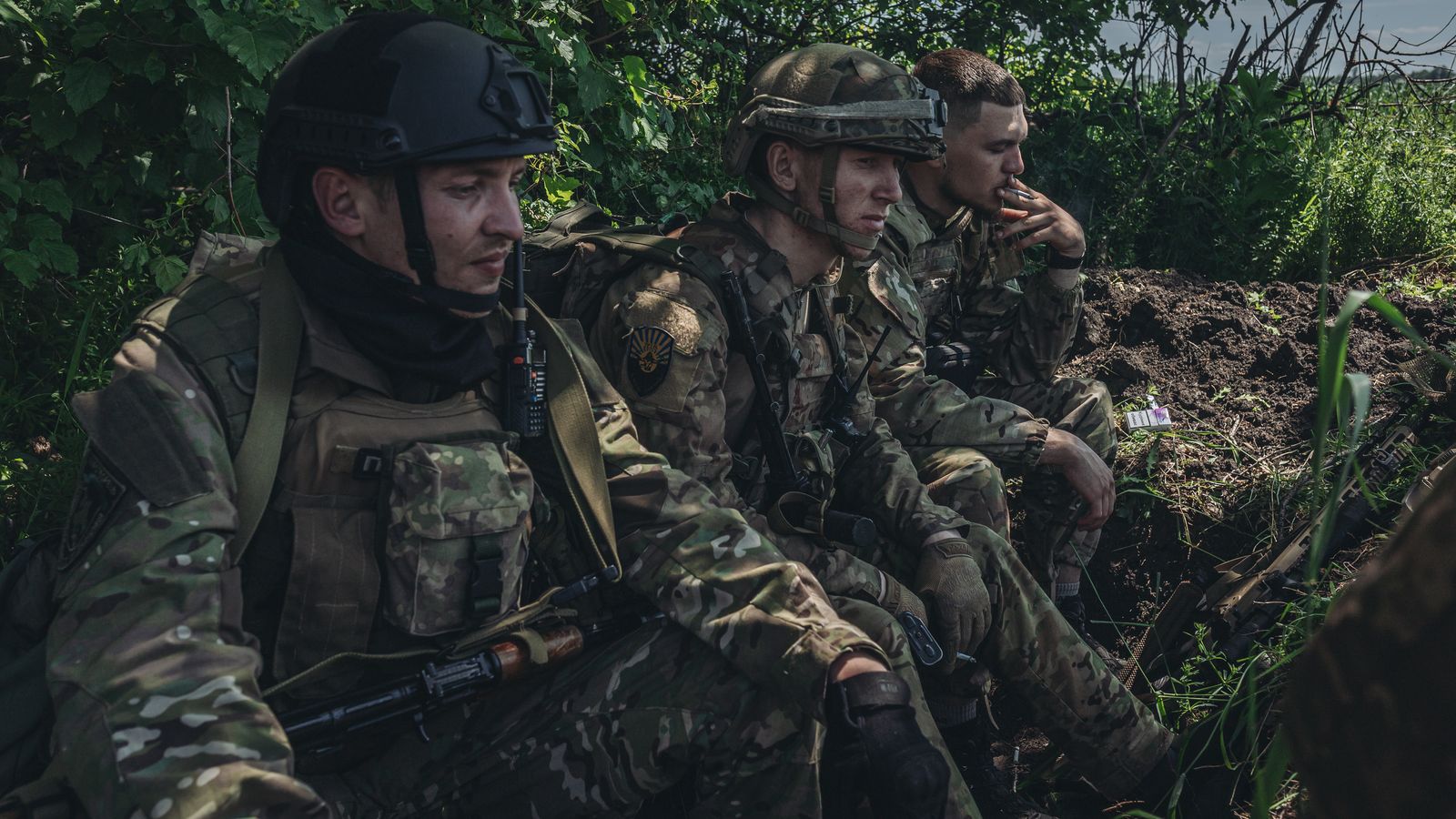Слуга народа, глава фракции, Давид Арахамия озвучил новые данные по потерям ВСУ

У Украины достаточно сил, чтобы продолжать борьбу с российскими захватчиками, однако не хватает вооружения, подчеркнул нардеп. Каждый день на Донбассе гибнут и получают ранения до тысячи украинских солдат. За последние две недели это число значительно выросло. Об этом заявил глава фракции Слуга народа Давид Арахамия, пишет в среду, 15 июня, Аxios.
Нардеп уточнил, что ежедневно потери ВСУ на востоке Украины составляют в среднем "от 200 до 500 убитых и гораздо больше раненых".
В то же время Арахамия сообщил, что Украина призвала в армию миллион человек и имеет возможность набрать еще два миллиона, поэтому у нее достаточно сил, чтобы продолжать борьбу с российскими захватчиками. Однако, подчеркнул он, защитникам не хватает оружия и боеприпасов.
"Наша переговорная позиция на самом деле довольно слабая, мы не хотим сидеть за столом переговоров, если находимся в такой позиции. Нам нужно каким-то образом обратить события вспять", - сказал политик, акцентировав на необходимости контрнаступления ВСУ для возвращения территорий.
Как известно, глава украинской делегации по мирным переговорам с Россией Давид Арахамия пребывает с рабочим визитом в США.
Напомним, 9 июня министр обороны Украины Алексей Резников заявил, что в ходе боевых действий с оккупантами Украина теряет до сотни военнослужащих ежедневно. При этом в Офисе президента назвали число потерь в 100-200 военных.
Оригинал публикации здесь
Ukraine suffering up to 1,000 casualties per day in Donbas, official says

Up to 1,000 Ukrainian soldiers are being killed or wounded each day in the Donbas region of eastern Ukraine, with 200 to 500 killed on average and many more wounded, a top Ukrainian official said on Wednesday.
The big picture: President Volodymyr Zelensky said on June 1 that 60 to 100 Ukrainian troops were being killed daily as Russia stepped up its Donbas offensive. Over the past two weeks that number has climbed significantly according to David Arakhamia, who leads Ukraine's negotiations with Russia and is one of Zelensky's closest advisers.
- Ukraine has recruited one million people into the army and has the capacity to recruit two million more, Arakhamia said, so it has the numbers to continue the fight in Donbas, where Russia has been gradually gaining territory.
- Joint Chiefs Chairman Gen. Mark Milley was asked about the rate of Ukrainian casualties on Wednesday and said it was difficult to estimate but previous media reports of around 100 killed and up to 300 injured each day had been "in the ballpark of our assessments." He was not responding to the latest Ukrainian estimate.
- Milley also said Russia had taken "huge" losses and Ukraine was fighting effectively.
What Ukraine lacks, Arakhamia contended, is the weaponry and ammunition to match Russia in "one of the biggest fights of the 21st century." He said: "We have the people trained to attack, to counterattack, but we need weapons for this."
- "Our negotiating position is actually quite weak, so we don't want to sit at the table if we are in this position. We need to reverse it in some way," Arakhamia said, stressing the need for a counter-operation to regain lost territory.
Driving the news: Arakhamia is leading a Ukrainian delegation in Washington this week to lobby the Biden administration and Congress to increase the pace of weapons shipments and to recognize Russia as a state sponsor of terrorism - a topic he said they plan to raise with House Speaker Nancy Pelosi (D-Calif.).
- President Biden spoke with Zelensky Wednesday and informed him of additional military and humanitarian assistance, the White House said. The $1 billion in weapons to be shipped to Ukraine include rockets and artillery ammunition.
- In a roundtable Wednesday at the German Marshall Fund, Arakhamia and other members of the delegation noted that while Biden had signed a $40 billion package to aid Ukraine in May, it was only very gradually translating into actual weapons shipments.
- Meanwhile, Ukraine's partners - particularly in Europe - are beginning to focus on replenishing their own stockpiles rather than arming Ukraine, Arakhamia said. He noted that the German government was still very reluctant to approve export licenses to arm Ukraine, perhaps due to "internal fear" of Russia.
What to watch: While formal negotiations are frozen, Arakhamia said he and his team speak by phone with their Russian counterparts "one or two times per week" to check in, even though "both sides clearly realize that right now, there is no place for negotiation."
- He said there was domestic backlash to the idea of negotiating with Russia at all after the alleged war crimes in cities like Bucha and Mariupol, but also noted the war would have to end through "compromise."
More from the roundtable:
- Arakhamia said Russia was using neighboring Georgia to evade sanctions, with the compliance of the "obviously pro-Russian" government, which Georgia denies.
- Arakhamia said "our military people" strongly oppose the idea of de-mining Ukraine's Black Sea ports in exchange for Russia allowing grain exports, because there would be "no guarantee" Russia wouldn't use those corridors to attack by sea.
- The Ukrainian negotiator said Russia was largely insulated from sanctions due to high oil prices, but would feel the full effects in three or four years. "The question is if we (Ukraine) are still here in three or four years to enjoy the show."
Go deeper: One Ukrainian soldier's view from the front lines in Donbas